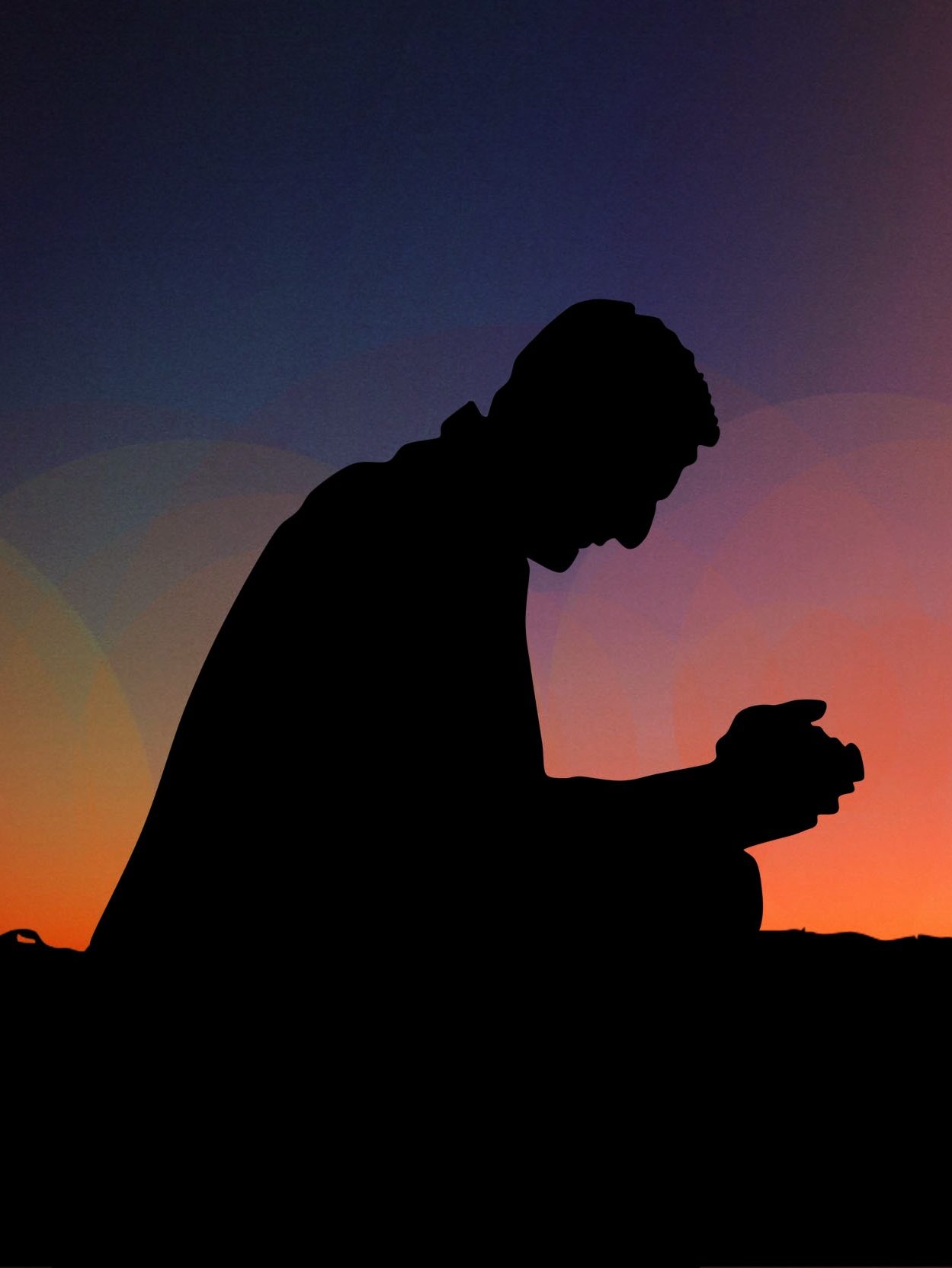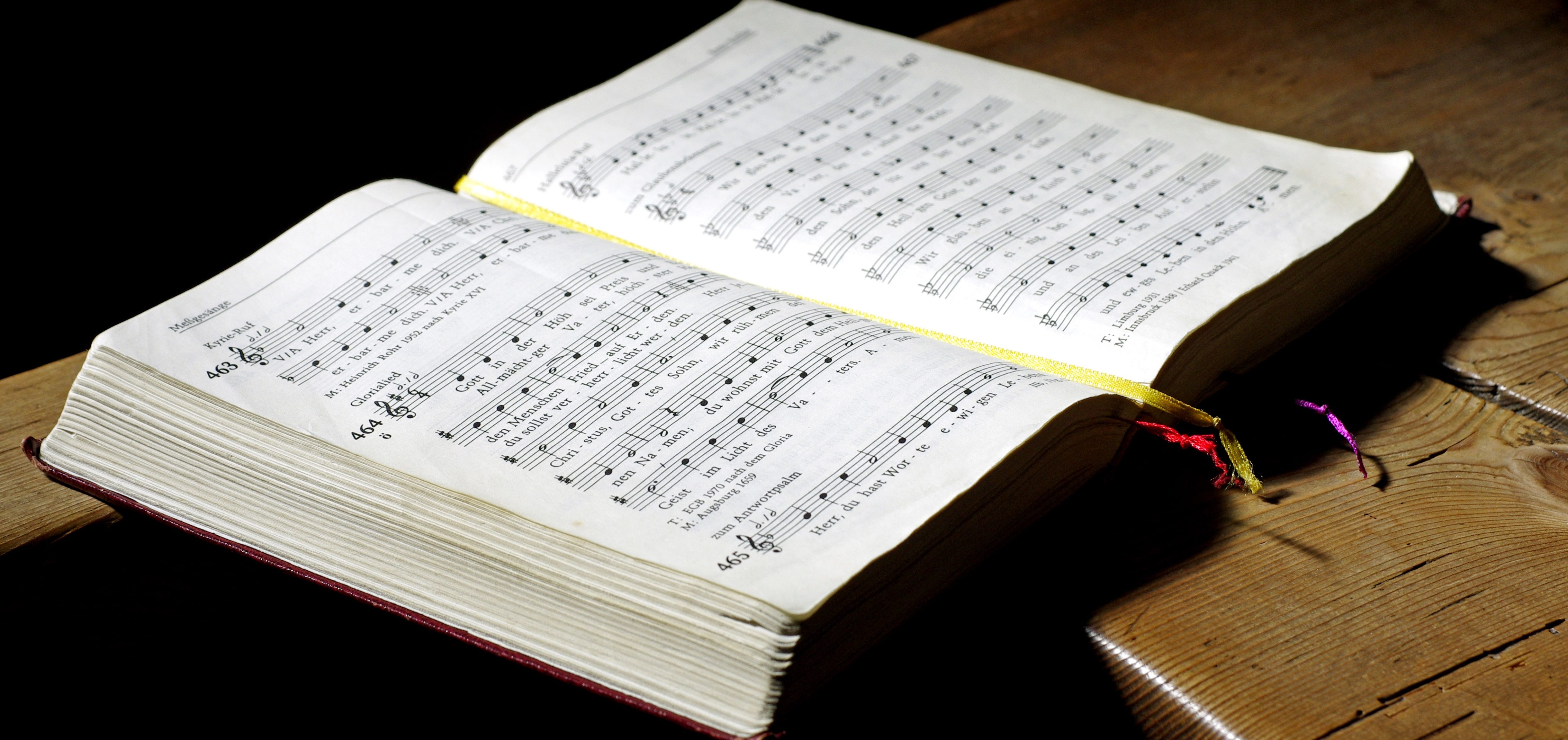An article by Ger de Koning about the singing of God's children. Current affairs in corona time.
Redeemed are singing!
In the (provisional) last corona press conference on June 24, Prime Minister Rutte spoke about singing in church. Before I go into what he said about that, let me first say something about what singing means to the believer and especially to God the Father and the Lord Jesus. By the believer I mean someone who has repented of his sins to God and has accepted in faith that the Lord Jesus died for his sins. Such a person knows and confesses with great gratitude that he is a child of God. By the Spirit of God, who dwells in him, he says “Abba Father”. By that same Spirit the believers are formed into one body, the church of the living God.
The consciousness of being redeemed from sins and no longer on the way to hell, but to the Father's house, is a cause for praising God and the Lord Jesus eternally. That can't be any other way, can it? The congregation longs to sing of its Savior. Singing is an expression of a heart full of Him who came to save people.

Singing belongs to a redeemed people. The first mention of singing in the Bible is by Israel, God's earthly people, after they have been delivered from Egypt and arrived safely on the other side of the Red Sea, while the power of the enemy has been broken ( Exodus 15:1). This song of salvation is also sung in the end times (Revelation 15:2-3). God's heavenly people, the church, will sing this song forever as the song of the Lamb (Revelation 5:9-14). The Israelites have been redeemed by the Lamb; through the Lamb all believers of all ages have been redeemed.
There is also a special connection between singing and the Lord's Supper. We can deduce that from its institution by the Lord Jesus. After the institution, they sing the hymn (Matthew 26:26-30). That is why it is so beautiful that the communion supper is surrounded by the singing of the redeemed together with the Lord Jesus. We read about this in Hebrews 2, where the Lord Jesus, after establishing the close relationship between the believer and Him, says, "I will proclaim Your Name to My brethren, in [the] midst of [the] congregation I will sing praise to You" (Hebrews 2:11-12).
This verse in Hebrews 2 is a quote from Psalm 22 (Psalm 22:23). This psalm speaks penetratingly about the work of the Lord Jesus on the cross as the Bearer of the sins of those who believe in Him and also about His resurrection. Through His resurrection, the results of that tremendous work have become visible. One of the results is that He proclaims His Father's name to those whom He calls "My brethren" (John 20:17).
And it does not stop there. His proclamation produces a new result, which is that He sings a song of praise in the midst of His brethren, the congregation, and together with them. He Himself raises the song of praise "in [the] midst of [the] congregation." His song is the grateful song of praise in response to the fact that God has raised Him up and glorified Him. And as a result of His work, we may agree with that. Isn't that great?
What the government thinks
And what does Prime Minister Rutte say as government spokesman? Singing is prohibited, or strongly discouraged, due to the risk of contamination – it is not clear at the time of this writing what exactly is meant, but is also not important in the context of this article. He suggests that instead of singing a song, they should read the song and add that it might create a new tradition. There will be another directive about singing from the RIVM.
The same prime minister says, without any sign of shame, that sex workers can also go about their business again, of course without any restrictions, because that is not possible in that 'profession'. As if it's the most natural thing in the world. Of course it is, unfortunately, too. But not for the believer? Isn't he so awake and sober that he sees, among other things, how far God and His Word have been banned from Dutch society and government? How could such a government, far removed from God and His Word, notice or recommend anything sensible about the service of God, something that would be to the greater honor and glory of God and His Christ?
Psalm 14 says, “The fool saith in his heart, There is no God” (Psalm 14:1a). The fool is an ungodly one. He is not an atheist, but someone who consciously disregards God in his life. He deliberately ignores God as uninteresting. His life revolves only around himself. He acts entirely according to his own discretion, without regard to God in the slightest. If God is not taken into account, it also has harmful consequences for the environment of the fool. There is an inseparable and unmistakable link between religious decline and social decay. Whoever excludes God becomes a disaster for his fellowmen. This is the real calamity that the believers face and face more and more.
Surely there is no government but of God. That is what God's Word says in the letter to the believers in Rome (Romans 1:7; 13:1). That is why we must be submissive to government in all areas of social life. This also applies if it concerns a government that, as it was then in Rome, behaves cruelly towards the believers. Paul, the writer of this letter, experienced this firsthand. According to tradition, he was killed by beheading on the orders of the Roman emperor Nero.
Obedience
However, if the government is going to interfere in the content of the congregation, we must obey God rather than men (Acts 5:29). It reminds me of the government in China that is increasingly showing its hold over and influence in the churches and home churches. For example, the government wants communist songs to be sung during the services. There is also a government plan to have the Bible rewritten. They want communist ideas to be incorporated into it. We don't go that far, but as local municipalities we are confronted with government interference that has never been so strongly expressed before.
We should not be tempted to act unwisely because we may not like certain government measures related to Covid-19. What we can, we must do. What matters to me is who is in charge of our personal and communal lives, who is our counselor. Above all, also above the government that has been placed above us and which we have to recognize, that is the Lord Jesus. One of His Names is “Counselor” (Isaiah 9:5). The government set over us has no regard for God. At the press conference it was said that we, 17 million compatriots, have managed to curb the virus to such an extent that the measures can be relaxed. We have earned these relaxations ourselves. Not a single word of thanks to God.
Pray
That shouldn't surprise us, but it will give us extra motivation to pray for the government. Paul also calls for this (1 Timothy 2:1-2). He does that when in his day there is a God-hostile government. Public prayer will show an ungodly or God-hostile government that the believers are not insurgents. Nor is it primarily a matter of persuading the authorities through prayer to please the faithful. As already noted, Paul experienced this firsthand. Prayer is therefore especially important to keep the believer inwardly from feelings of rebellion and bitterness. Through prayer the believer rises above the prevailing situation. Prayer makes the heart "quiet and still" amid trials of faith. Whatever decisions the government makes, the Lord asks that we be subject to government. We should not deny that attitude, even if in a particular case we must obey the Lord more than the government.

We may be able to learn from Daniel here. In Daniel 6 a law of the Medes and Persians is enacted that no one in all the world empire of the Medes and Persians should pray to anyone other than Darius, the head of that empire. The whole empire is locked to every god, including the true God. Whoever breaks the commandment will be thrown into the lions' den. When Daniel hears of it, he does not petition the king for a waiver. Nor does he seek conversation with his opponents. He goes straight home. Returning home, he goes to his upstairs room to pray and give thanks according to his custom, “just as he had done before,” as it succinctly says (Daniel 6:11). He doesn't care about his 'neighbours', who are lurking to sue him.
Nor does he close the windows for fear of being seen. Nor does he adjust his attitude and prayer times. He does everything “before his God”. God is “his God”, which indicates that he has a personal relationship with God. Here we see the secret of his quiet intrepidity: he does not pray before men, but before his God. When he is arrested and thrown into the lion's den, he does not resist. We know the outcome, he didn't.
We can say that the Netherlands and Europe have been locked up for some time from the true God, the Father of our Lord Jesus Christ. That did not start with the 'intelligent lockdown', but because of that this being 'closed' to God has become unmistakably public. They always invoked and appealed to science. There was and is no question of any calling to God. The only god to which one knelt and prostrate is the god of science. And what does that mean? Fear.
The believer was one who was subject to the fear of death all his life (Hebrews 2:15). He is delivered from that fear by Him Who by His own death destroyed the devil who had the power of death. The thought of that makes you happy and grateful. The Father and the Son long to hear from us. What will we do to continue what is so precious to us, and especially to the Lord Jesus and the Father? Our situation is not nearly as exciting as Daniel's. In any case, we cannot compare our situation one-on-one with situations of believers from the past or in the present. We can learn from it, especially when it comes to examples in the Bible. That is why they were written down in God's Word for us (1 Corinthians 10:6,11; Romans 15:4; see also Hebrews 11:35b-40).

The good news is that choirs are allowed to sing. The (local) congregation is a choir, isn't it? Let's look at the Lord Jesus and His work on the cross. Then we can't stop singing about Him and to His glory?
Ger de Koning || Middelburg, June 30, 2020
See also about singing here:
– About the Psalms
– About our hymns



